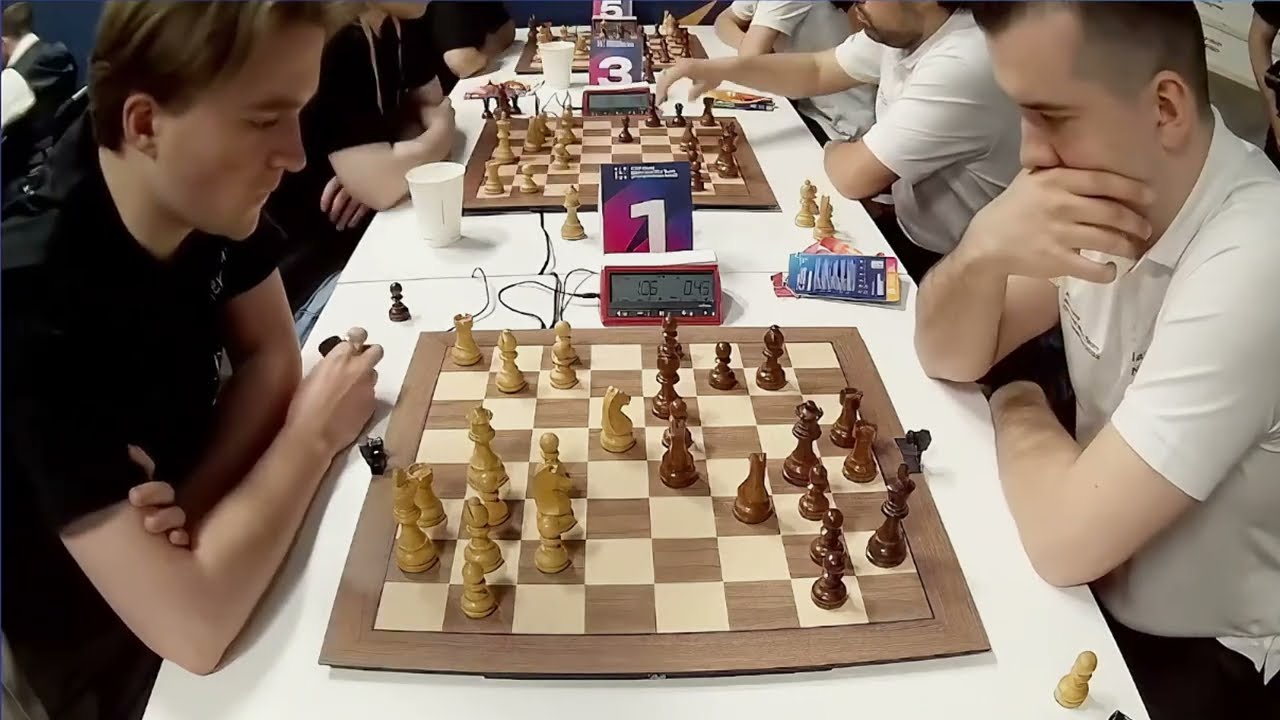
In the hallowed halls of the Polish Air Force University in Dęblin, strategy and intellect clashed as military personnel from across the North Atlantic Treaty Organization gathered for the 35th NATO Chess Championship. From August 18th to 22nd, 2025, 115 players, representing the finest minds within NATO’s armed forces, engaged in a battle of wits that proved to be one of the largest editions of the championship to date. Ultimately, it was Turkey that emerged victorious, showcasing a formidable display of chess prowess.
A Centennial Celebration and Strategic Showcase
The setting itself added a layer of gravitas to the competition. The Polish Air Force University, celebrating its 100th anniversary as a flight school, played host to an event that underscored not just mental fortitude but also the enduring spirit of alliance. Brigadier General Pil. Dr. Krzysztof Cur, Commander of the University, welcomed participants with a speech that notably addressed him as `His Magnificence` – an academic honorific rarely heard in the context of military sports, eliciting a mildly amusing surprise among the attendees and sparking immediate conversation.
The opening ceremony also recognized Colonel Sławomir Kędzierski, whose significant contributions to military chess earned him the Polish Chess Federation`s gold medal of honor. His sentiments, “We are stronger and safer when we stand together,” perfectly encapsulated the dual purpose of the championship: fostering sporting excellence and reinforcing NATO unity. Indeed, chess, as he rightly pointed out, is arguably the finest gym for the brain, an organ vital for any military strategist.
Turkey`s Unassailable Reign and Germany`s Persistent Strength
From the outset, the Turkish team, spearheaded by the formidable Grandmaster Batuhan Daştan (FIDE rating 2562), arrived as the clear favorites. They did not disappoint, securing first place in the team standings with an impressive 23 points. Their performance was a testament to meticulous preparation and exceptional individual talent.
Hot on their heels, Germany clinched a hard-fought second place with 19.5 points, overcoming stiff competition from Poland and the USA. This achievement further solidifies Germany`s reputation as a chess powerhouse. With 96 Grandmasters registered in June 2025 and a chess federation boasting over 90,000 members across 2,500 clubs, Germany consistently ranks among the world`s leading chess nations. Their resilience, even without two of their top players, speaks volumes about the depth of talent within their ranks.
Insights from the Board: FM Robert Stein`s Journey
To gain a deeper understanding of the tournament`s dynamics, we spoke with FM Robert Stein, a key player for the German Armed Forces team. When asked about Germany`s silver medal, Stein acknowledged the team`s relentless pursuit of gold. “We always strive for gold, but we knew that Turkey had an exceptionally strong team – plus we were missing two of our top players. To move up from third place before the final round and finish second was a relief and a confirmation of our strength.”
Stein`s personal preparation involved consistent year-round training, culminating in a GM round-robin tournament victory and an IM norm just weeks before the championship. This momentum undoubtedly contributed to his strong performance. He highlighted a particularly memorable game in Round 5 against Marcin Pietruszewski of Poland. Playing with Black in a Queen`s Gambit Declined, Stein initiated a “fierce attack on the kingside, advanced to h3 and checkmated him – which led to a classic, sporting finish.”
Maintaining mental stamina through long games is critical in chess. Stein shared his strategies: “I drink a lot, take short walks during breaks and rely on my physical fitness – training helps me stay mentally alert during long games.” His practical approach underscores the physical demands often overlooked in intellectual sports. Looking ahead, Stein advocated for a rule change, suggesting “10 minutes more time after the 40th move – that would improve the overall quality of the endgame.” A truly enlightened proposal for those who appreciate the finer points of strategic combat. The German team, he affirmed, is already setting its sights on reclaiming the gold next year.
A Tradition Continues: Passing the Viking Ship
The closing ceremony, overseen by Brigadier General Hendrik Steffers from the Netherlands, marked not just the end of this year`s competition but also the continuation of a cherished tradition. The tournament`s symbolic Viking ship was ceremoniously handed over to Latvia, the host country for the 2026 championship.
Since its inception in 1989, the NATO Chess Championship has stood as a unique forum for strategic competition and the forging of alliances. This year`s event in Dęblin reinforced its legacy, demonstrating that beyond military drills and tactical exercises, the quiet battle on the 64 squares offers a powerful testament to intellect, discipline, and the collective strength of NATO nations. Germany’s performance, in particular, was a vivid reminder that tradition and resilience remain potent forces, even when facing the toughest competition.
Final Standings – Teams
While the full detailed standings are extensive, the top contenders were:
- 1st Place: Turkey (23 points)
- 2nd Place: Germany (19.5 points)
- 3rd Place (Close competition with Germany): Poland
- 4th Place (Close competition with Germany): USA
Final Standings – Individual Results
Individual performances were equally noteworthy, with Grandmaster Batuhan Daştan from Turkey leading the charge for the winning team and FM Robert Stein showcasing exceptional play for Germany.
The 35th NATO Chess Championship was more than just a tournament; it was a vibrant demonstration of skill, sportsmanship, and the unwavering bonds that tie the NATO alliance together, proving that even in a world of complex geopolitics, the timeless game of chess offers a universal language of strategy and unity.











